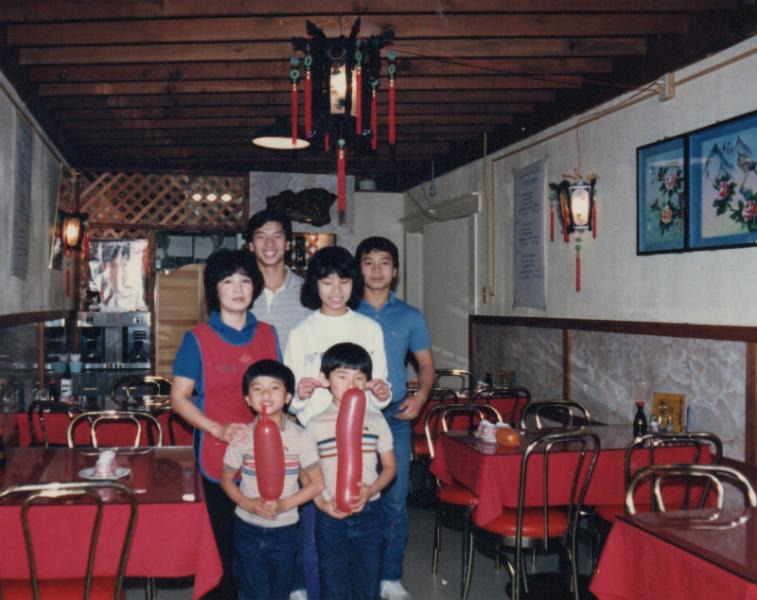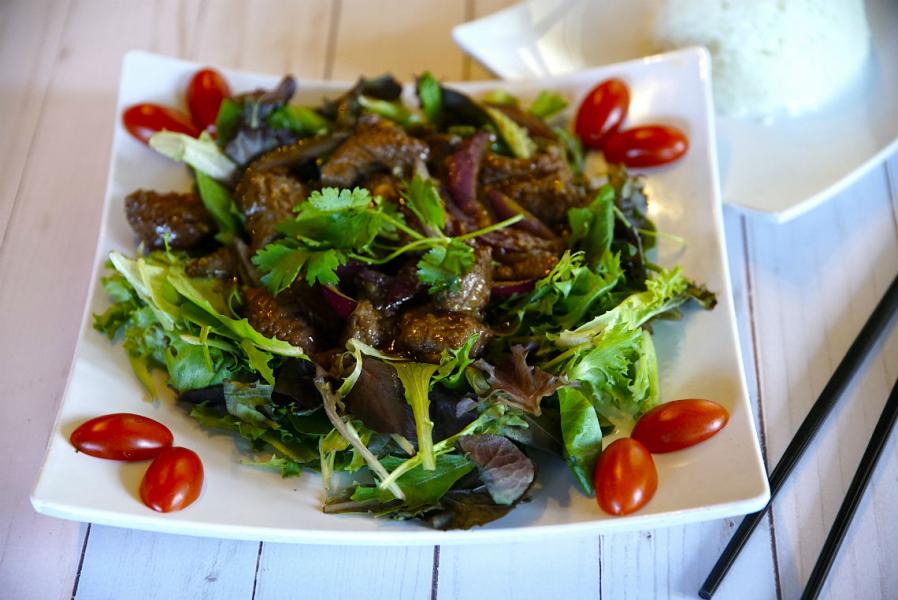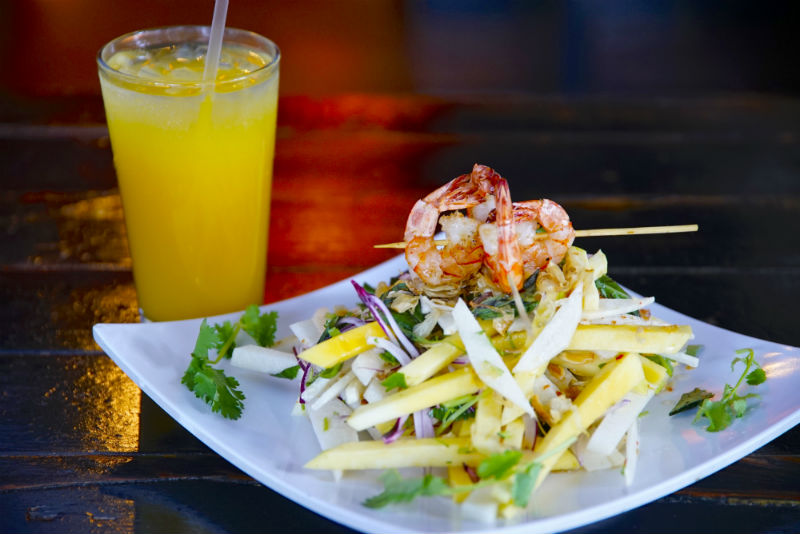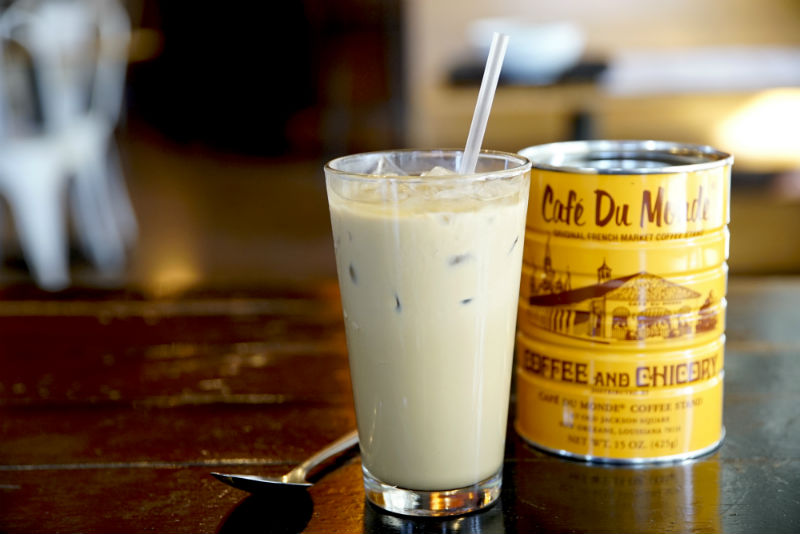
Originally written March 25, 2019, Updated December 11, 2023
One of the most exciting restaurants in the North Satellite Modernization Project (NSAT) at Seattle-Tacoma International Airport (SEA) is Bambuza Vietnam Kitchen between the N18 and N19 gates.
Bambuza Vietnam Kitchen is owned by husband-and-wife team, Daniel Nguyen and Katherine Lam, who highlight cherished family recipes, locally-sourced ingredients, and vibrant Vietnamese flavors in every dish. The name Bambuza pays homage to the bamboo plant, found throughout Vietnam. In Vietnamese culture, bamboo represents integrity, stewardship and community, all of which are at the heart of Bambuza’s daily operations. Their dedication to creating a superior dining experience for the community drives everything they do, from their neighborhood fundraising and volunteer work, to their commitment to sustainability, and an expansive menu with options for all diets.
To introduce travelers to the newest NSAT food concept, we had a chance to speak with Daniel Nguyen, Bambuza CEO and founder, about the restaurant’s history and what’s next at Sea-Tac Airport.
Tell me about Bambuza’s origin story
My family arrived in the Pacific Northwest from Vietnam in 1975 following the fall of Saigon. My parents got their first jobs at a paper mill in Camas, Washington and woolen mills in Washougal, Washington. My mom, Mama Lan, dreamed of opening her own restaurant, which she did in 1983 in Camas. That was the beginning of our family’s legacy as restaurateurs.

Mama Lan worked long days at our family’s restaurants, and she joked that she cooked six days a week to go to church on the seventh day to pray she doesn’t get sick.
I eventually left for college and got my degree in business from the University of Puget Sound. My parents teased me about seeing if I could put my degree to work in the family business, and that’s exactly what I did. Since 2003, we grew from a concept started in downtown Seattle to six Pacific Northwest locations with SEA Airport now open.
Why SEA Airport?
Opening at SEA Airport feels like a homecoming for Bambuza because our original Seattle location was downtown at the corner of 9th and Pike. This is an opportunity to serve Vietnamese cuisine to millions of travelers.
Sea-Tac Airport is a major hub that connects the Puget Sound region to the Asia-Pacific region. This airport served nearly 49.8 million passengers last year! Food is a medium to communicate and connect people. It is a cultural experience and a common language. Our team is looking forward to sharing our food with travelers in the N Gates.

What does Bambuza add to the airport?
The Pacific Northwest region intertwines many cuisines and cultures. We have a large Vietnamese community here and opening Bambuza at SEA brings the tastes of our culture into the airport. Whether it’s pho noodle soups or banh mi sandwiches, we offer unique flavors and a modern version of airport food.

What’s the dining experience at Bambuza?
We wanted to create the vibe of Saigon in the 1960s, which is looked back on nostalgically as the golden age of Vietnam. The country was moving from a French post-Colonial society towards democracy. Our interior evokes a sense of that optimism. We took our design cues from black and white images of Saigon in that era and juxtaposed those with a vintage, reclaimed wood motif.
We have silk, orange lanterns that are handmade for us in our ancestral village of Hoi An — they’re a signature of all Bambuza locations. I am most stoked about our vintage 1967 Vespa that will be on display at our entrance — these Italian scooters were all over the streets of Saigon. It’s got unique retro-feel in a space within the ultra-modern expanded N Gates!
What is your favorite thing on the menu?
Iced Vietnamese Coffee. It is dark and rich with sweetened condensed milk, which serves as the sweetener and creamer. Saigon was the pearl of the French colonial empire, who originally introduced coffee, and it has been part of Vietnamese morning rituals for generations. The traditional way of brewing coffee is a pour-over method, drip by drip. It can’t be rushed. It’s social. It is a simple beverage that holds a lot of ritual and tradition.







